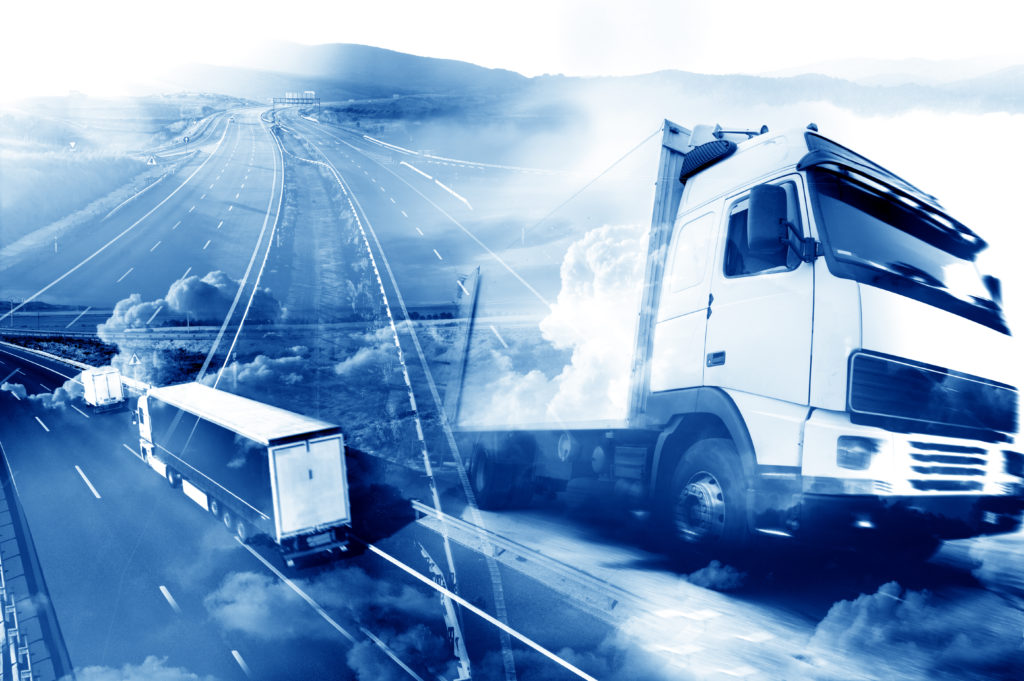
Throughout the pandemic of the novel coronavirus, technology has played a major role in how trucking companies have been able to work through the changes and challenges of the industry during an economic shift.
“When you think about it from a technology standpoint, it’s all about communication and it’s about information,” said senior vice president of sales at NFI Industries, William Mahoney. “So, [this includes] being diligent and trying to do more with less.”
Employee health and safety has become a main focus of most trucking companies at this time, as well. In these efforts, technology has also helped companies reduce the number of in-person interactions typically required of daily duties.
“Our core value of safety in regard to drivers, dockworkers, office personnel, customers, and all essential members of the supply chain has been the primary focus of our technology and process improvements,” said Saia vice president of line-haul and industrial engineering, Patrick Sugar. “This pandemic has led us to challenge the way we think as an organization.”
One example of Saia’s implementation of helpful technology in the midst of COVID-19 has been the use of a time clock application within its employee portal, which is currently allowing for mobile and remote access for workers.
“From employees arriving to the terminal to clocking out at the end of the day, every process has been evaluated and modified in order to reduce face-to-face interaction,” Sugar explained. “We have leveraged technology where capable in the short time, and have built mid- and long-term technology road maps to create process resiliency.”
Many technological tools used in offices and vehicles to adapt with the current changes and to continue to allow loads to be efficiently booked and hauled are web-based solutions, said Trimble Transportation director of product management mobility, Jenna Dobrovolny. She also said the ability to work remotely has been a key component of these updates, as well.
As telematics systems automate dispatching, driver monitoring, hours-of-service compliance, and GPS location efforts, they play an important part in allowing workers to work remotely. When these systems are paired with safety devices like in-cab cameras, cargo monitors, collision avoidance systems, and lane departure control, fleets can have double the benefits.
“Telematics solutions are vital in the current situation,” said Mix Telematics head of global market, Jonathan Bates. “A fleet can only take care of safety if it knows what is happening every second of every day with its drivers and vehicles.”
Fleets’ safety systems can also be accessed remotely, said Stefan Heck, CEO of Nauto. Nauto’s in-cab camera technology has allowed safety personnel to work from home. This way, they give their feedback through the system application’s web portal.
The amount of data collected by telematics systems is currently more vital than ever, said Omnitracts CEO, Ray Greer.
“This unprecedented disruption means that drivers and fleets need to be much more reliant on real-time data from all tiers of the distribution model,” Greer explained. “Real-time routing and rerouting will be crucial in ensuring timely delivery of anything from basic goods to protective gear.”
For Estes Express Lines, touchless delivery has become a regular aspect of day-to-day activity. The company has stopped delivery appointment and signature requirements and keeps customers up-to-date on shipments via texts and phone calls. Vice president of process improvement at Estes, Webb Estes, says customers have taken the changes well.
“It’s important to understand that consumers don’t view the shipment and delivery process any differently from their online shopping experience,” Estes said. “To them, it is one continuous process.”
For NFI, technology has helped to analyze the market changes that have taken place since the beginning of the pandemic, as the company has dealt with higher-than-usual demand for essential services.
“How do we maximize the miles and hours that our drivers have to drive? ” Mahoney asked. “Because, right now, business has slowed down in so many verticals, like automotive.”
Will Connell, Gulf Intermodal Services President, praises the ability of technology to make the current necessary recovery a different process from that of previous economic crises.
“What’s different today than what happened in the Great Recession is the technology is much greater,” said Connell. “So, we’re able to leverage the technology that we have in the truck with our internal transportation management system.”
Reader Interactions